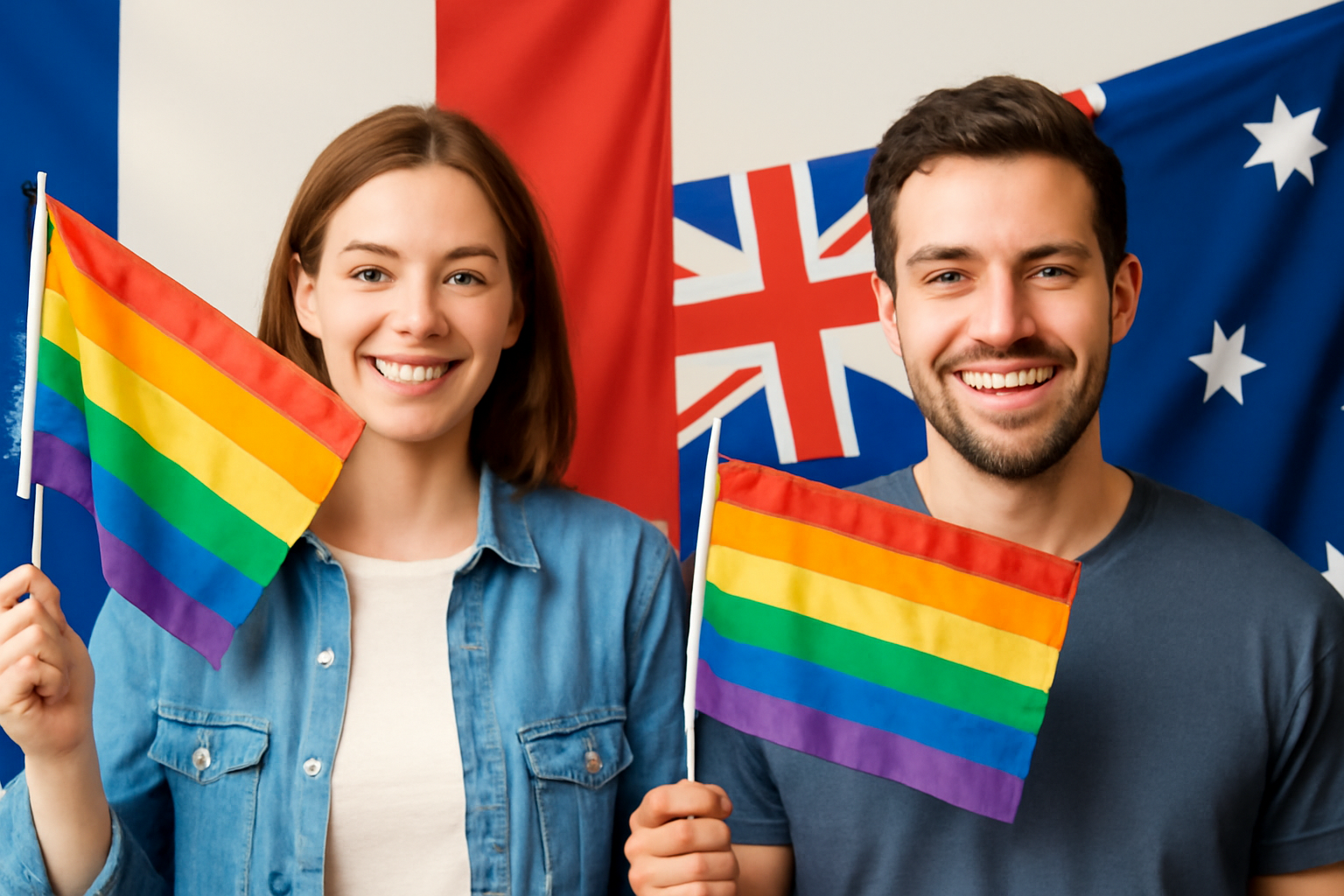
France
In France, the recent passing of Jean-Marie Le Pen, founder of the far-right National Rally party, sparked widespread reaction across the nation. Le Pen, who died at the age of 96 on January 7, was known for his controversial and often inflammatory remarks, especially against immigrants, Muslims, and the LGBTQ+ community. Throughout his political career, spanning decades, Le Pen ran for the presidency of France five times, notably reaching the second round in the 2002 election, only to be defeated by Jacques Chirac in a historic landslide.
Le Pen's rhetoric often targeted the LGBTQ+ community. In 2018, he was found guilty by a French court of spreading hate against homosexuals and was fined for his actions. His controversial statements included linking homosexuality to pedophilia, making derogatory comments about having gay members in his party, and expressing distaste for the husband of a slain gay police officer speaking at a state funeral.
Moreover, Le Pen's problematic views extended beyond LGBTQ+ issues. In the 1980s, he advocated for the forced isolation of individuals living with HIV. He also garnered criticism for his remarks downplaying the Holocaust, which led to multiple fines. His statements often showed sympathy for those who collaborated with the Nazi regime during World War II.
Despite his divisive legacy, Le Pen's influence within the National Rally was substantial. However, in 2015, his daughter Marine Le Pen, who had taken over the party in 2011, expelled him following his refusal to comply with party disciplinary measures over his persistent Holocaust denial.
Following the announcement of Le Pen's death, a gathering occurred at Paris's Place de la République, where individuals celebrated, waving Pride flags and tossing confetti. Social media saw the rise of the hashtag "NoOneMournsTheWicked," a nod to the viral memes referencing the song from the musical "Wicked." Interestingly, the same hashtag trended in the United States shortly after, coinciding with the death of Anita Bryant, another prominent figure known for her anti-LGBTQ+ views in the 1980s.
Australia
In Australia, Melbourne's well-known Pride festival, Midsumma, has been at the center of controversy. The organization Transgender Victoria announced that it would not participate in this year's parade, a decision driven by concerns over police involvement in the event. This announcement was accompanied by a wave of vandalism targeting businesses supporting the festival.
On January 8, businesses along the parade route found themselves vandalized with posters and spray paint calling for a boycott of Midsumma. Surveillance footage captured a group of masked individuals responsible for the acts, though they remain unidentified. The messages on the posters criticized the commercialization of Pride and the participation of police in the festival.
Statements such as "Queer liberation not rainbow capitalism" and "No Pride on stolen land" were prominently displayed, highlighting a tension within the community regarding the direction and inclusivity of such events. Despite the vandalism, businesses managed to clean up the damage swiftly.
Transgender Victoria elaborated on their decision via social media, pointing to a community forum and survey revealing significant discontent among trans and gender-diverse individuals concerning their experiences with Victoria Police. Consequently, TGV decided to suspend its participation in the Midsumma Pride March for a year, with future involvement dependent on measurable accountability from law enforcement.
While stepping back from the main parade, Transgender Victoria plans to engage in other elements of the Midsumma Festival and will organize a Trans Pride Picnic as an alternative gathering. The festival, which runs from January 19 to February 9, features the Midsumma Pride March on February 2 and Victoria's Pride Street Party on February 9.
Last year's Pride march was marked by conflict when protesters threw pink paint at a group of police officers participating in the parade. The officers, who had agreed to march without uniforms or weapons, were seen pushing back against the demonstrators. These events have added to the ongoing conversation about the role of law enforcement in LGBTQ+ celebrations and the broader implications of corporate sponsorships in such cultural events.
Related Posts
"Wicked": Unveiling Fiyero's Destiny - Hidden Clues You May Have Overlooked
Have you ever been swept away by a story that leaves you unraveling clues long after it ends? That's exactly what "Wicked" does with its enchanting narrative, unforgettable songs, and complex characters. Among them, Fiyero stands out as a charming prince whose surprising metamorphosis by curtain fall makes us wonder: were there hints about his fate scattered throughout? Let's dig deep and see if " [...]
Triumphant Trans Woman Wins Legal Battle and Inspires Others to Stand Up for Their Rights
Breaking new ground: a landmark victory in transgender rights After battling in courtrooms and enduring endless challenges, Diana Portillo, a transgender woman, has secured a monumental victory in her decade-long fight against workplace discrimination. The result? Nearly $1 million awarded in a historic settlement. But this isn't just a win on paper—it represents a powerful precedent in combati [...]
Pride Month in Latin America: Protests and Demands for Equality
**Celebrating Pride and advocating LGBTQ+ rights in Latin America** Pride Month in Latin America was a lively mix where celebration met activism. Communities united, not just throwing a party but making a stand—demanding equality and pushing governments toward better protection and rights recognition. Throughout Latin America, pride events erupted in marches and cultural displays, each with a c [...]